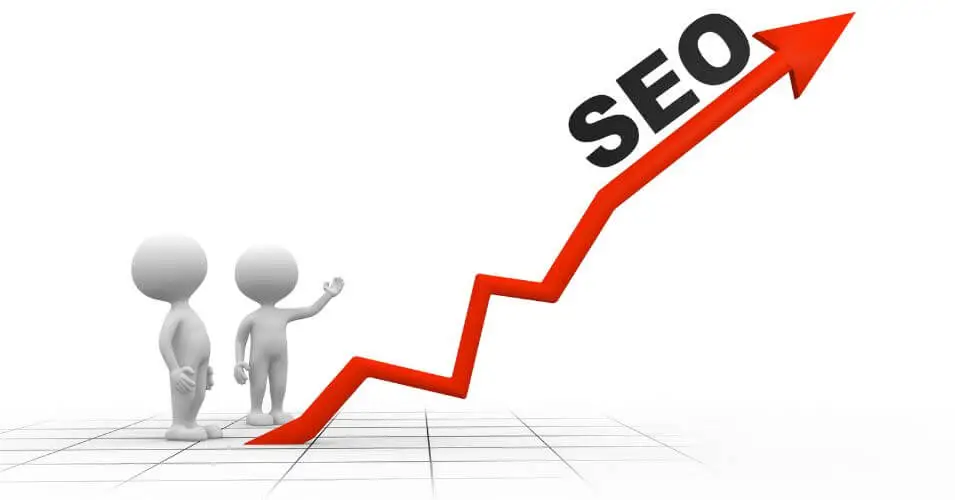How Long Does It Take to Learn SEO – What You Need to Know
In today’s digital age, Search Engine Optimization (SEO) has become a crucial skill for anyone looking to succeed in the online marketing space. As a result, one common question I often get asked is, “How long does it take to learn SEO?”
Unfortunately, the answer to that really depends. Specifically, it depends on what aspect of SEO you are trying to learn and what you need to learn it for.
In this guide, we will dive into some of the different parts of SEO. I’ll discuss the relative learning difficulty as well as a rough gauge of how long it might take to learn each. Finally, I’ll include a link to several resources that I found helpful when first starting out that are still relevant today.
With that said – let’s jump in!
The Basics of SEO
Broadly speaking there are 4 main components to SEO. These are keyword research, on page SEO, technical SEO, and off page SEO – all of which play an important role in your overall strategy.
Let’s take a look at each!
Keyword Research
Simply put, keyword research is the process of identifying and selecting specific keywords or phrases that people are likely to use when searching for products, services, or information related to your business. It is the initial information from which the rest of your SEO strategy flows because it defines what searches you want to optimize for.
Good keyword research requires a deep understanding of what your business offers and how consumers might search for it. With that information, you can use keyword research tools to analyze volume and competition. The most popular keyword research tools include Google Keyword Planner, SEMrush, Ahrefs, and Moz Keyword Explorer.
Most people can probably pick up the basics of keyword research in a couple weeks. However, good keyword research is more art than science and can take years to fully master. In my opinion, the toughest part (and what takes the longest to master) is getting a feel for which keywords have the right balance of search volume and competition for your business stage.
On Page SEO
On page SEO refers to optimization efforts focused on improving the content of your web pages. In general, this means making the page clear, user friendly, and easy to navigate. A key piece of this is creating valuable and informative content that incorporates relevant keywords in a structured manner. This is where your keyword research comes in.
The biggest component of on page SEO is providing high quality content that is unique and relevant to the keywords you want to optimize for. Other important pieces of on page optimization include:
- Title Tags – to describe the main point of the page.
- Meta Descriptions – to provide a longer description of the page for SERPs.
- Internal Links – for easy navigation to other pages on your website.
- Proper Structure – to signify the relative importance of different sections.
- Alt Tags – to improve page accessibility.
While this is not a comprehensive list, you can see that each piece is focused on making the page more user friendly and easy to navigate.
Although it might seem like a lot, learning on page SEO is pretty straightforward. Most people should be able to grasp the basics in under a week and master many of the concepts within a few months. However, the real challenge is creating unique, relevant, and valuable content that is optimized for your users’ searches.
Technical SEO
Technical SEO is the branch of search engine optimization that focuses on optimizing the technical aspects of a website. This optimization ensures that search engines can crawl, index, and understand the website's content efficiently. In my opinion, it is also the hardest part of SEO for many people to learn because it involves the underlying structure and functionality of a website.
Without going too deep, some high-level concepts related to technical SEO include:
- Website Performance – to ensure fast loading and good user experience.
- Website Structure – to ensure search engines can understand and index your pages.
- Website Responsiveness – to ensure visitors have a good mobile experience.
Each of these three concepts can be broken down into hundreds of smaller components, some of which would take years to learn how to implement ourselves. Thankfully, the majority of SEOs need only understand these concepts and have some basic technical knowledge to establish credibility with developers.
As I mentioned before, I believe this is the hardest part of SEO to learn. Especially for those coming in new, technical SEO is a lot to learn. However, even the most non-technical of people should be able to grasp all the basics within 6 months and have a solid handle within about a year and a half. The toughest part is really learning how websites work, how different elements can affect performance, and then how to convey that to a developer in their language.
Off Page SEO
Off page SEO refers to the optimization efforts made outside your website to improve authority and visibility in search engine results pages. Unlike on page SEO, this involves building/leveraging relationships, credibility, and trust with external sources to boost your website’s ranking. The key component of off page SEO is link building or acquiring links from other websites pointed to your site (backlinks).
High quality and relevant backlinks act as “votes of confidence” in the eyes of search engines. It indicates that the content on a given page is valuable and authoritative. This signal can significantly improve a website’s ranking. However, it’s crucial to focus on quality over quantity in this regard and avoid spammy or low quality links.
Some of my favorite ways to build high quality backlinks include:
- Content – producing high quality original content and/or research.
- Guest blogging – offering to write a blog and linking back to your site.
- Partner linking – leverage existing partners to include a link to your site.
- Build free tools – utilize engineering to build simple but valuable free tools.
- Ask for attribution – ask anyone that mentions your brand to include a link.
These are just a few ways of the many ways to generate high quality backlinks. However, you will want to avoid any strategies that create a pattern of unnatural, artificial, deceptive, or manipulative links pointing to your site. For example, buying links or participating in link schemes is a violation of Google’s policy and can result in penalties including removal from search engine results pages.
Similar to on page SEO, learning the basics of off page SEO is relatively simple. It shouldn’t take more than a week to really grasp the general concepts. However, to become proficient at actually generating these high quality links is a bit trickier. The hard part is really understanding your market well enough to be able to build quality content and relationships that result in backlinks which in my opinion takes at least 3-6 months for an experienced marketer in any new industry.
How Long Does It Take to Learn SEO
While every individual is unique, it will take about 12-18 months to learn SEO and be effective. However, your background will play a major role in how quickly you pick up different concepts. For example, an individual with a background in web development will likely be able to pick up technical SEO relatively easy while on page or link building might be more difficult.
Here is a rough guideline for how long each of the core components of SEO should take:
- Keyword Research: 2 weeks to pick up the basics, proficient within 1 year.
- On Page SEO: 1 week to pick up the basics, proficient within 6 months.
- Technical SEO: 3-6 months to pick up the basics, proficient with 1-2 years.
- Off Page SEO: 1 week to pick up the basics, proficient within 3-6 months.
In total, this means a beginner can start learning about SEO and expect to be relatively proficient across all domains within about 1-2 years. While this may seem like a lot, the tools you pick up and learn to use as well as the trial and error are tough to speed up.
How To Learn SEO
In my opinion, the best way to learn the basics of SEO is hands down through Moz Beginner’s Guide to SEO. The guide is completely free and, in my opinion, provides one of the best front to back playbook of everything you need to get started with SEO. In addition, it provides dozens of resources throughout each chapter to help you dive deeper into difficult topics.
Some other great resources include:
- Google Search Central: (https://developers.google.com/search/docs) Google's own documentation offers valuable insights.
- Search Engine Land: (https://searchengineland.com/) SEO focused blog that provides news and updates from around the industry.
- SEMRush and Moz Blogs: (https://www.semrush.com/blog/ | https://moz.com/blog) Official blogs for two of the most widely used SEO tools in the industry.
Wrapping it Up
Mastering SEO takes time and commitment. While you can learn the basics of keyword research, on-page, technical, and off-page SEO with some concentrated effort, becoming truly proficient in SEO can take years. However, the payoff is well worth the effort. A strong SEO strategy can make your online presence much more visible, boosting your business in multiple ways.
Here are some additional SEO resources you might find helpful:
- Supercharge Your SEO with These 4 Free Tools
- This Simple SEO Checklist Will Put You Ahead of 99% of Competitors
- Common SEO Mistakes
For more marketing tips and tricks, subscribe to my monthly newsletter where I send out the best resources and articles I come across each month.
If you have questions or would like to schedule a free 1 on 1 marketing consultation for your business then you can reach out to me here: Schedule a Free Digital Marketing Consultation.




